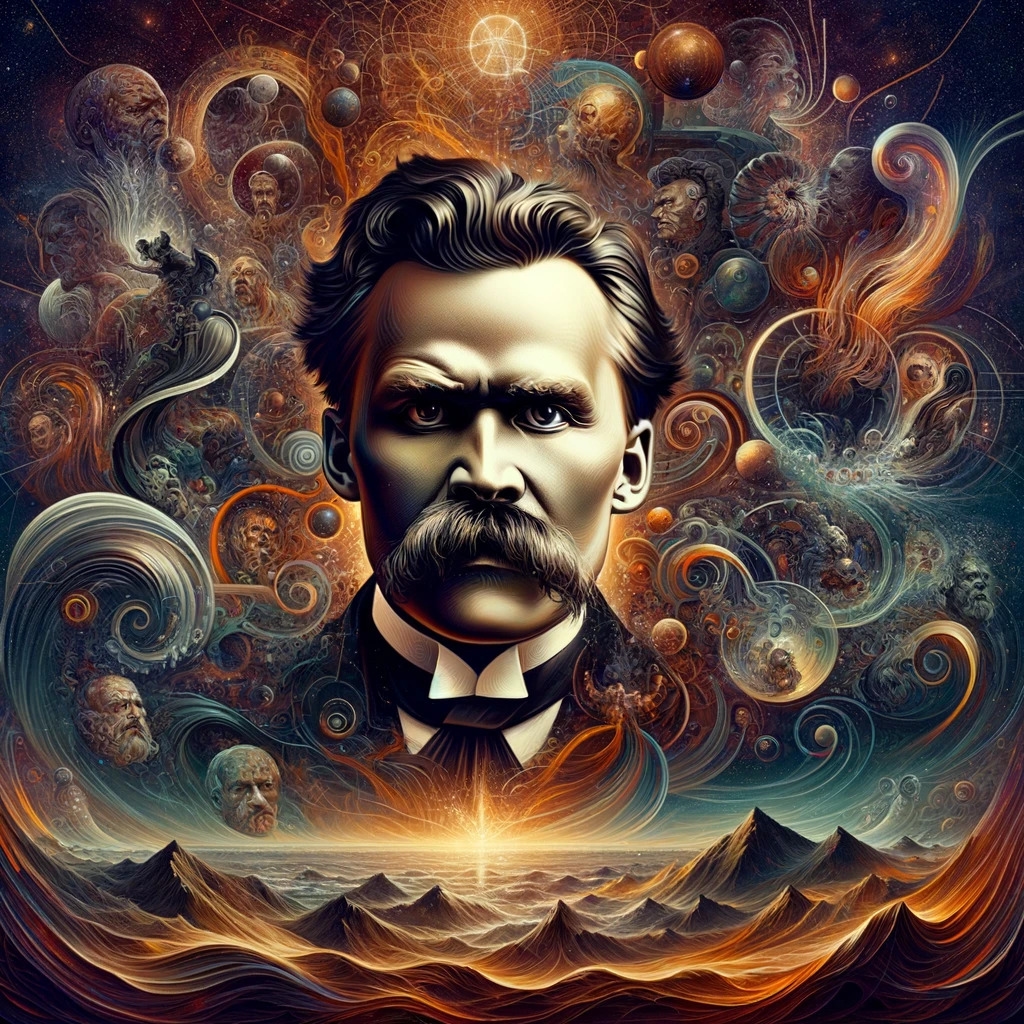Welcome to Nietzsche Market website,

Friedrich Nietzsche was a German philosopher, cultural critic, composer, poet, and philologist whose work has exerted a profound influence on modern intellectual history. Born on October 15, 1844, in Röcken, Prussia, Nietzsche's body of work touched a wide variety of topics, including art, philology, history, religion, tragedy, culture, and science. His most famous works include "Thus Spoke Zarathustra" (1883–85), "Beyond Good and Evil" (1886), and "The Genealogy of Morals" (1887).
Central to Nietzsche's philosophy is the idea of life-affirmation, which involves an honest questioning of all doctrines that drain life's expansive energies, however socially prevalent those views might be. Often associated with existentialism, his philosophy is marked by radical critiques of traditional European morality and religion, as well as of conventional philosophical ideas and social and political pieties associated with modernity.
Nietzsche's concept of the Übermensch, or "Overman", is one of his most significant contributions to philosophy. This concept describes a being who has overcome the human condition and reached a higher state of existence, beyond established morality and conventional understanding of good and evil.
Regarding knowledge and truth, Nietzsche was critical of the concept of objective reality, arguing that knowledge is often an expression of power dynamics. He introduced the concept of perspectivism, which suggests that there are many different interpretations and perspectives of the world, none of which can claim to be the final or absolute truth.
Nietzsche's thoughts on morality are profoundly influential, especially his critique of Christian morality. He believed that the traditional moral values of society were not natural or universal but were instead a product of a particular historical context.
In art and aesthetics, Nietzsche saw the potential for art to serve as a counterforce to the decline of culture and society. He believed that through art, individuals could affirm their existence and assert their will to power.
Nietzsche's influence remains pervasive within and beyond philosophy, notably in existentialism and postmodernism. His ideas continue to be debated and discussed, with his writings challenging readers to question the foundations of their beliefs and values.
Todos:
- Podcasts, Voices, ...
- Books to download in persian and english.